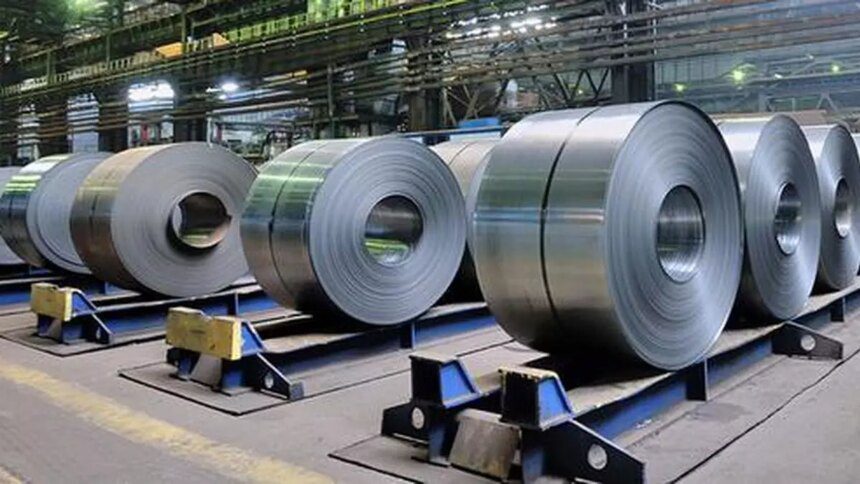US President Donald Trump’s recent decision to impose a 25 per cent tariff on all steel imports is causing concerns among analysts and steelmakers, who fear that this move could lead to increased dumping in global markets. This could drive down prices and force large steel producers in countries like China to seek alternative markets, such as India, through deep discounts.
The tariff hike is expected to put pressure on domestic steel prices in India, which could impact the margins of major steelmakers like Tata Steel, JSW Steel, and ArcelorMittal-Nippon Steel. Despite Canada being the largest steel supplier to the US, with $12.98 billion in exports, China’s steel exports to the US grew by 10.5 per cent to reach $12.48 billion. Brazil, Mexico, and South Korea are also significant steel suppliers to the US.
Anubhav Kathuria, Managing Director of Synergy Steels, warned that the higher US tariffs could divert Chinese and other Asian exports to India, intensifying competition and driving down domestic prices. This could particularly hurt small Indian producers who struggle to compete with low-cost Chinese imports. However, Kathuria expressed optimism about Prime Minister Narendra Modi’s upcoming visit to the US, where discussions on a possible mini-trade deal could benefit sectors like steel and stainless steel.
Ajay Garg, CEO of SMC Global Securities, highlighted the risk of excessive competition impacting steel players globally and putting pressure on steel prices. He suggested that India might remain partially shielded, as the recent Budget’s infrastructure push is expected to increase demand for steel and support domestic manufacturers.
The removal of duty exemptions on imports priced below $800 per tonne could further amplify the impact of the tariff hike. Manish Bhandari, CEO and Portfolio Manager at Vallum Capital Advisors, explained that the effective tariff increase is closer to 12 percentage points, rather than the stated 10 per cent, due to this exemption removal. This makes alternative markets even more attractive for Chinese steel producers, who are expected to redirect exports, adjust pricing, and expand into countries like India to absorb excess supply.
Puneet Singhania, Director of Master Trust Group, warned that China’s overcapacity problem has already led to a surge of cheap steel imports into India. He cautioned that if Chinese producers continue dumping steel at below-market prices, it could pose a significant challenge for Indian manufacturers.
The tariff hike comes at a time when India remains a net steel importer, with inbound steel shipments increasing by over 20 per cent between April and January of this fiscal year. Industry experts anticipate that Chinese firms will continue to target alternative markets like India, posing a threat to the domestic steel industry.










